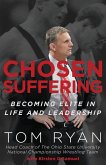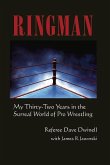This book explores the history, culture, and philosophy of Lucha Canaria, the traditional wrestling style of the Canary Islands. It examines how this unique combat sport has shaped and been shaped by the people of the islands, preserving identity and values across generations. The tour begins with an exploration of indigenous combat traditions, focusing on the role of wrestling in Guanche warrior culture and the rituals of strength that existed in pre-Hispanic society. It then moves into the period of Spanish conquest, analyzing how Castilian rule influenced local wrestling practices, the blending of indigenous and European techniques, and how wrestling became a symbol of resilience and island identity. The book also examines the cultural significance of Lucha Canaria, emphasizing honor, respect, and the philosophy of strength without aggression. It highlights the role of elders in preserving traditions and ensuring that the ethical foundations of the sport remain intact. The technical aspects of the sport are explained through an overview of its fundamental principles, strategic movements, and how ancestral knowledge has been adapted to fit modern sporting arenas. Beyond competition, Lucha Canaria serves as a bond within the community. The book explores its presence in festivals and ceremonial gatherings, where it remains a centerpiece of public celebrations. Training is viewed as a rite of passage for youth, shaping their character and connecting them to their heritage. To place Lucha Canaria within a broader context, the book compares it to other folk wrestling traditions. It discusses its parallels with Iberian and African grappling arts, how it differs from mainland Spanish combat styles, and its shared heritage with other Atlantic martial traditions. The modern era presents both challenges and opportunities for the sport. The book examines the institutionalization and regulation of Lucha Canaria, the impact of globalization, and concerns about cultural dilution. It also highlights efforts to preserve and revive the sport through grassroots initiatives, youth programs, and media promotion. Finally, the book reflects on the philosophy of combat and identity, discussing how the struggle in the ring mirrors island resilience, the ethos of the wrestler's strength, humility, and honor, and how this ancient tradition continues to hold meaning in the modern world
Hinweis: Dieser Artikel kann nur an eine deutsche Lieferadresse ausgeliefert werden.
Hinweis: Dieser Artikel kann nur an eine deutsche Lieferadresse ausgeliefert werden.








